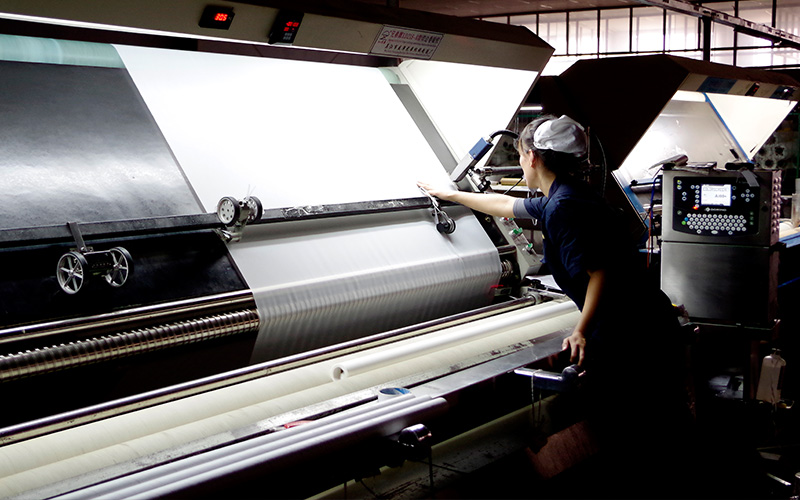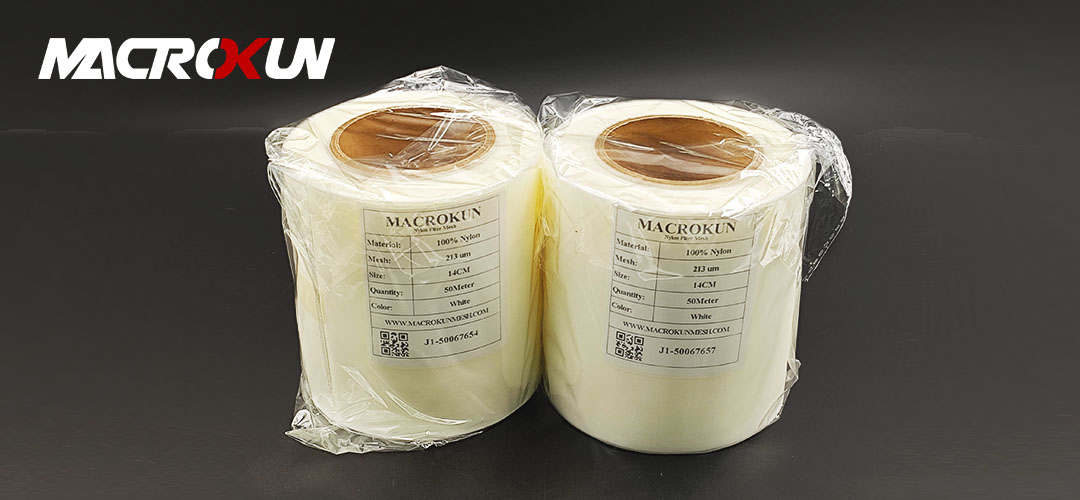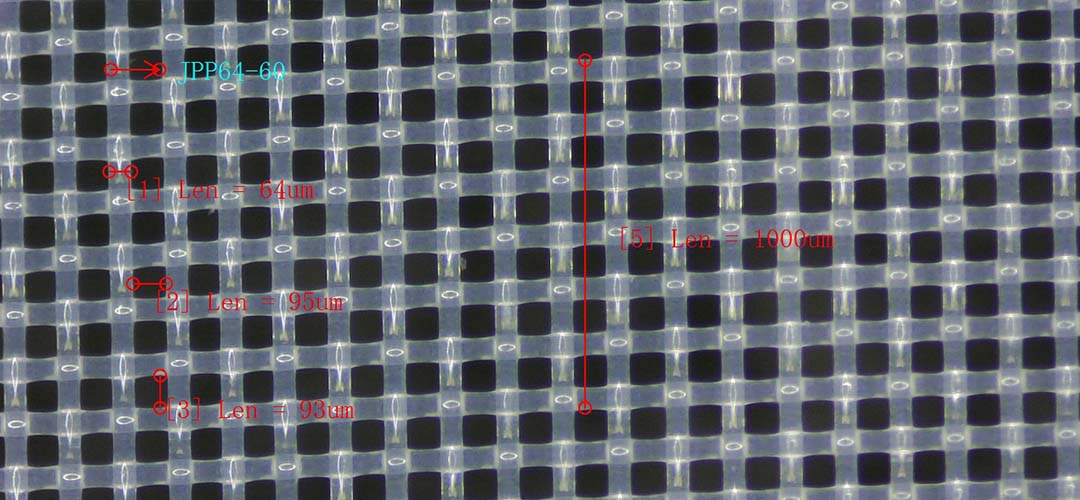In the world of filtration, precision is key. Whether it’s in the pharmaceutical industry, food and beverage production, or any other field that requires the removal of impurities from liquids or gases, having the right filtration system in place is essential. One material that has proven to be highly effective in achieving precise filtration is fine micron nylon mesh.
Fine micron nylon mesh is a versatile material that is commonly used in filtration applications due to its durability, flexibility, and ability to capture even the smallest particles. With mesh sizes ranging from 5 microns to 500 microns, this material is capable of filtering out a wide range of impurities, making it ideal for a variety of industries.
One of the key benefits of using fine micron nylon mesh for filtration is its ability to provide consistent and reliable results. The uniformity of the mesh ensures that particles of a certain size are captured every time, leading to a more efficient filtration process. This level of precision is crucial in industries where even the smallest impurities can have a significant impact on the final product.
Another advantage of fine micron nylon mesh is its high flow rate. Despite its fine mesh size, this material allows for a fast and efficient flow of liquids or gases through the filter, reducing the risk of clogging and ensuring a continuous filtration process. This is particularly important in industries where time is of the essence and any delays in the filtration process can result in costly downtime.
In addition to its precision and high flow rate, fine micron nylon mesh is also known for its durability. Made from high-quality nylon fibers, this material is resistant to chemicals, abrasion, and temperature fluctuations, making it suitable for use in a wide range of harsh environments. This durability ensures that the mesh will maintain its integrity over time, providing long-lasting filtration performance.
Furthermore, fine micron nylon mesh is easy to clean and maintain, reducing the need for frequent replacements and saving on costs in the long run. Unlike some other filtration materials that require specialized cleaning procedures, nylon mesh can be easily rinsed or washed with water and mild detergent, making it a cost-effective option for businesses looking to maximize their filtration efficiency.

Overall, the benefits of using fine micron nylon mesh for filtration are clear. From its precision and high flow rate to its durability and ease of maintenance, this material offers a reliable and efficient solution for industries that require precise filtration of liquids or gases. By investing in fine micron nylon mesh, businesses can ensure that their filtration processes are optimized for maximum efficiency and effectiveness, leading to improved product quality and reduced downtime.
Fine micron nylon mesh is a critical component in many filtration processes, providing the precision needed to remove even the smallest particles from a liquid or gas. Choosing the right mesh for your filtration needs is essential to ensure optimal performance and efficiency. In this article, we will discuss the factors to consider when selecting fine micron nylon mesh and how to make the best choice for your specific application.

One of the most important factors to consider when choosing fine micron nylon mesh is the size of the particles you need to filter. The micron rating of the mesh refers to the size of the openings in the mesh, with a lower micron rating indicating smaller openings. If you need to filter out very small particles, such as bacteria or viruses, you will need a mesh with a lower micron rating. On the other hand, if you are filtering larger particles, a mesh with a higher micron rating may be sufficient.
Another important consideration when choosing fine micron nylon mesh is the material of the mesh itself. Nylon is a popular choice for filtration applications due to its durability, chemical resistance, and ability to maintain its shape under pressure. However, there are different types of nylon mesh available, each with its own unique properties. For example, monofilament nylon mesh is known for its strength and precision, while multifilament nylon mesh is more flexible and has a higher flow rate. Understanding the differences between these types of nylon mesh will help you choose the best option for your specific filtration needs.
In addition to the micron rating and material of the mesh, it is also important to consider the weave of the mesh. The weave of the mesh refers to the pattern in which the threads are intertwined, which can affect the flow rate and efficiency of the filtration process. For example, a plain weave mesh has a tight, uniform pattern that provides excellent particle retention, while a twill weave mesh has a more open pattern that allows for higher flow rates. By understanding the different weave patterns available, you can choose a mesh that will provide the ideal balance of particle retention and flow rate for your application.

When selecting fine micron nylon mesh for your filtration needs, it is also important to consider the operating conditions of your filtration system. Factors such as temperature, pressure, and chemical exposure can affect the performance and lifespan of the mesh. For example, if your filtration system operates at high temperatures, you will need a mesh that can withstand heat without degrading. Similarly, if your filtration system is exposed to corrosive chemicals, you will need a mesh that is chemically resistant. By considering these factors, you can choose a mesh that will provide reliable and consistent filtration performance in even the most challenging conditions.
In conclusion, choosing the right fine micron nylon mesh is essential for ensuring precision in filtration. By considering factors such as micron rating, material, weave, and operating conditions, you can select a mesh that will provide optimal performance and efficiency for your specific application. Whether you are filtering out bacteria in a medical device or removing contaminants from a chemical process, the right mesh will help you achieve the desired results.
Fine micron nylon mesh filters are essential components in various industries, including pharmaceuticals, food and beverage, and water treatment. These filters are designed to remove impurities and particles from liquids and gases, ensuring the quality and purity of the final product. To maintain the efficiency and effectiveness of fine micron nylon mesh filters, proper cleaning and maintenance are crucial. In this article, we will discuss some tips for maintaining and cleaning fine micron nylon mesh filters to ensure optimal performance.
One of the most important aspects of maintaining fine micron nylon mesh filters is regular cleaning. Over time, particles and impurities can accumulate on the surface of the filter, reducing its effectiveness. To prevent clogging and ensure proper filtration, it is essential to clean the filter regularly. This can be done by soaking the filter in a cleaning solution or using a gentle brush to remove debris.
When cleaning fine micron nylon mesh filters, it is important to use the right cleaning solution. Harsh chemicals can damage the filter and reduce its lifespan. Instead, opt for a mild detergent or a specialized filter cleaning solution that is designed for nylon mesh filters. These solutions are gentle on the filter while effectively removing impurities and particles.
In addition to regular cleaning, it is also important to inspect the filter for any signs of damage or wear. Fine micron nylon mesh filters are delicate and can easily tear or become damaged if not handled properly. Inspect the filter for any tears, holes, or signs of wear, and replace the filter if necessary. Regular inspection can help prevent costly repairs and ensure the filter continues to perform optimally.
Another important tip for maintaining fine micron nylon mesh filters is to handle them with care. Avoid using sharp objects or excessive force when cleaning or handling the filter, as this can cause damage. Instead, gently rinse the filter with water or soak it in a cleaning solution to remove impurities. Handle the filter with care to prevent tears or damage, and store it in a clean, dry place when not in use.
Proper storage is also essential for maintaining fine micron nylon mesh filters. Store the filter in a clean, dry place away from direct sunlight and moisture. Avoid storing the filter in areas with high temperatures or humidity, as this can cause the filter to degrade over time. By storing the filter properly, you can extend its lifespan and ensure it continues to perform effectively.
In conclusion, fine micron nylon mesh filters play a crucial role in ensuring precision in filtration processes. To maintain the efficiency and effectiveness of these filters, proper cleaning and maintenance are essential. By following the tips outlined in this article, you can ensure that your fine micron nylon mesh filters continue to perform optimally and provide reliable filtration for your industry needs.
Pre: Why Nylon Mesh for Filter Sieves Is a Key Component in Filtration Systems
Next: Nylon Mesh Filter Screen: Key Features and Applications

MACROKUN has established long-term and stable cooperative relations with many transportation companies such as China Post, DHL, FEDEX, USPS, UPS, etc. Of course, MACROKUN can also provide air and sea transportation. The powerful logistics system enables all MACROKUN'S Printing Mesh, Filter Mesh and Filter Bags and so on to be easily and efficiently transported to any place. For quotes and inquiries, please email our sales team.





